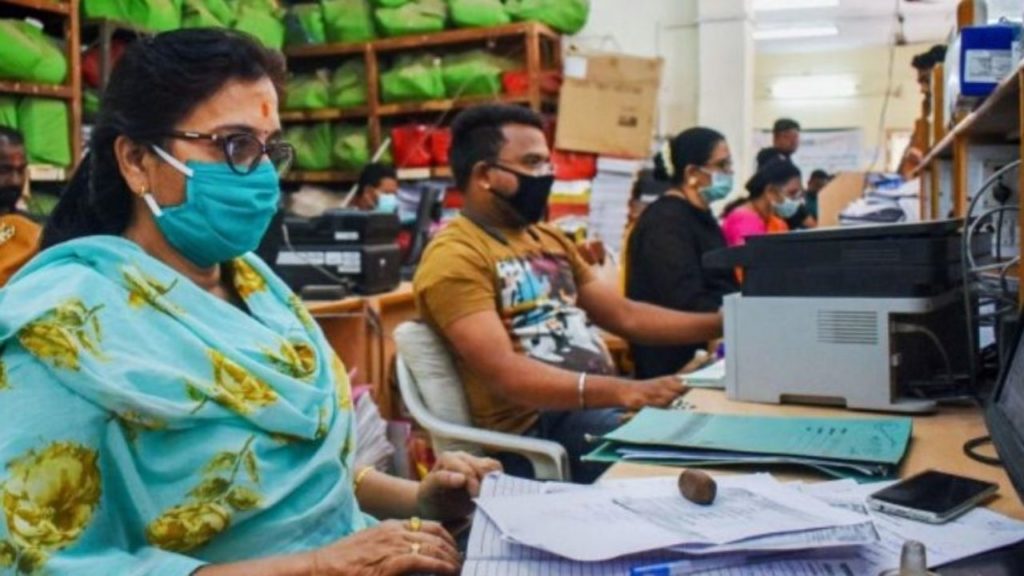48 Lakh Central Govt Employees Can Work From Home: Here Are The Official Rules For Productivity

The Department of Personnel and Training (DoPT) has now issued a draft framework for ‘work for home’ for all the central government employees, post lockdown.
It has drafted certain guidelines entailing the ‘work from home’ scheme for these employees as per which, these central government employees may have to work with staggered attendance and variable working hours.
E-office means digitization/computerization of office working.
Contents
What about Leave and Work from Home?
Under this framework, the central government employees will be eligible to work from home for 15 days in a year as a matter of policy.
If implemented, this policy will would affect around 48.34 lakh central government employees. The Personnel Ministry has informed all government departments that the coronavirus pandemic has necessitated many ministries to operate from home to maintain social distancing.
In a first time experience by the Government of India, many ministries and departments have successfully managed to perform e-office and video conferencing facilities of National Informatics Centre, which has helped them actively combat the coronavirus pandemic and practise social distancing.
A broad framework for work from home is important so that the whole procedure can be implemented and followed smoothly, without a glitch, while maintaining safety and security of information, accessing government files and information remotely from home.
Ministry Finalizes New Set of SOPs
In order for the employees to work seamlessly from home, the ministry has put down certain guidelines. These clearly indicate that it is very important for sound usage of computer and hardware devices so that e-offices are easily implemented.
For this purpose, the ministry has finalized a new set of Standard Operating Procedures (SOPs) for maintaining a continuity of office works.
- The Central Government Employees will be provided with the logistic supports in the form of laptop/ desktop by the respective ministries/departments.
- The ministries can use the inventory of laptops on rotational basis for those officers working from home and needing such logistic support.
- These employees may also receive reimbursement for internet services utilized while working from home.
- Department of Expenditure may consider reimbursement for data uses to the officers working from home and if required may issue separate guidelines in this regards.
- These officers who’ll receive office device will perform their official work only on these.
Extra Protocol for VIP Matters
For all the VIP and Parliament matters, the draft guidelines have proposed extra protocol, requiring utmost attention.
- SMS alerts will be sent out for all such receipts and files to the next officer in the channel.
- Also, the concerned departments still not using the e-office model, are advised to quickly shift onto the implementation of model, in a time-bounded fashion.
No Classified Files’ Processing at Homes
The draft guidelines have made it crystal clear that “classified papers/files” cannot be processed while working from home.
At present, about 75 ministries/departments are actively using e-office platform. Out of these 75, 57 have achieved more than 80% of their work on these platforms, already.
As per instructions of the Ministry of Home Affairs no classified information shall be handled through e-office. Therefore, classified files shall not be processed in e-office during work from home.
In accordance to this restrictionary policy, it is possible that the NIC might evaluate the existing security protocol for remote access of classified file/ information and propose suitable guidelines and SOPs for handling classified information in e-office.
The draft also said that unless anything otherwise is reported, classified files shall be processed on standalone computers only as specified in the Central Secretariat Manual of Office Procedure.
The DoPT has asked all the central government departments to send their comments by May 2. After this, if they fail to send, it would be presumed that the ministry/department is in agreement with the proposed draft.

Comments are closed, but trackbacks and pingbacks are open.